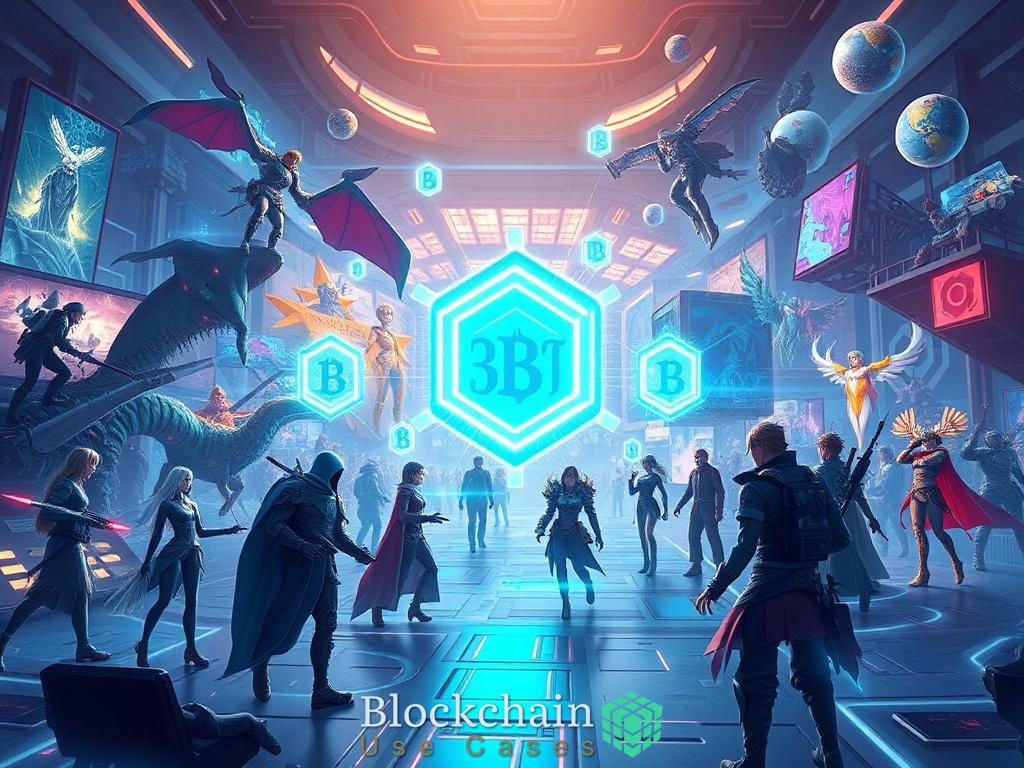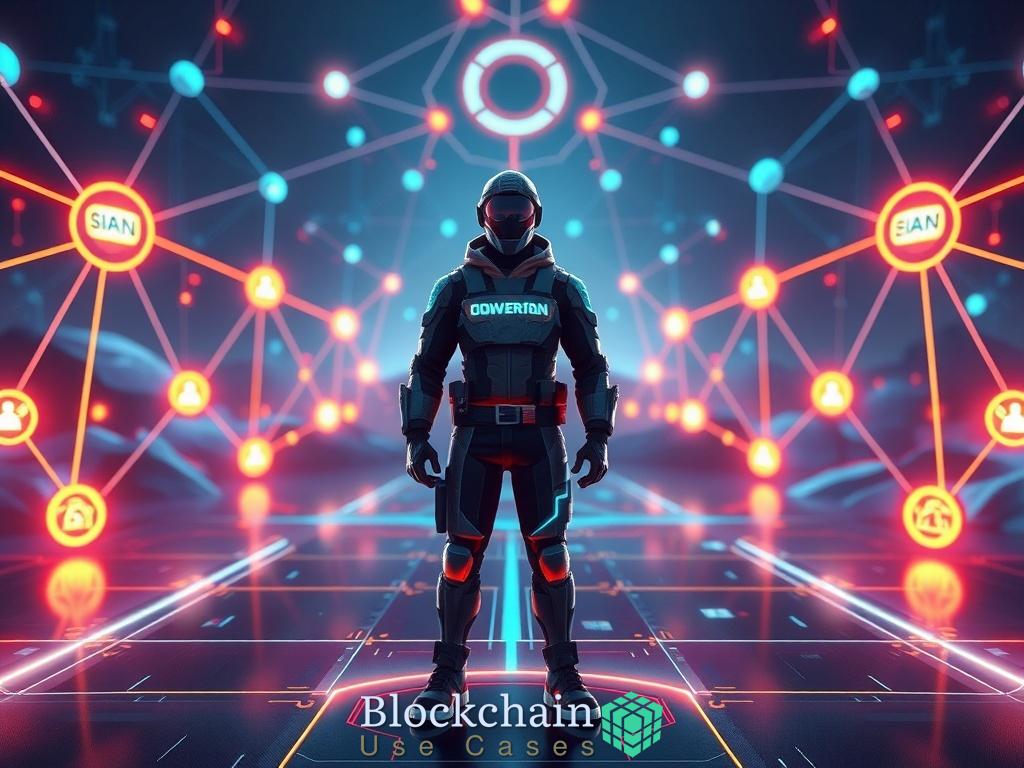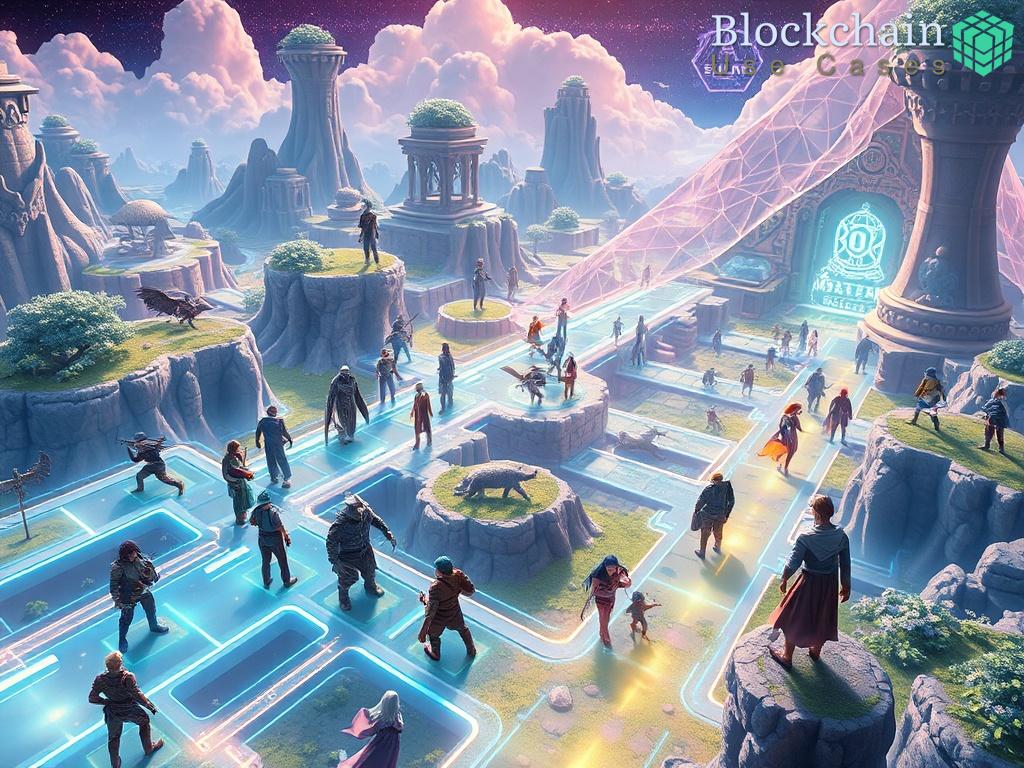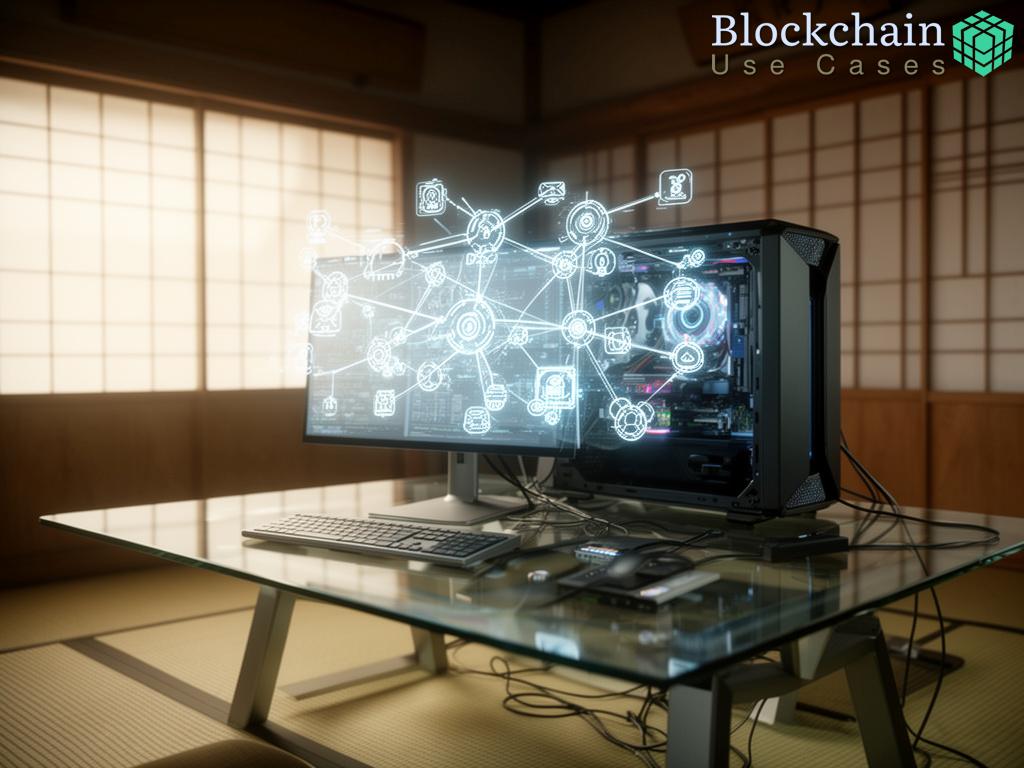Introduction to Blockchain in Gaming

As the gaming industry evolves, players are increasingly seeking ways to own and transfer their in-game assets across different platforms. Traditional gaming systems often restrict players to a singular ecosystem, limiting their ability to leverage their digital investments. Enter blockchain technology—a paradigm shift that promises to redefine ownership, security, and interoperability in gaming.
At its core, blockchain is a decentralized ledger technology that ensures transparency, security, and immutability of data. In the context of gaming, blockchain operates as a backbone that allows players to securely manage their digital assets. Each transaction, be it a character migration or asset transfer, is recorded on a public ledger, providing verifiable proof of ownership.
This decentralized approach addresses many of the pitfalls associated with traditional gaming platforms, such as fraud, hacking, and disputes over ownership. By enabling players to maintain control over their assets, blockchain fosters a more engaged and loyal gaming community.
The implementation of blockchain technology in cross-game character migration offers several compelling benefits. Below is a concise overview of the advantages:
- Enhanced Security: Blockchain’s encryption safeguards player data, making it nearly impossible for unauthorized parties to manipulate character identities.
- True Ownership: Players can genuinely own their characters and assets, breaking free from the confines of a single game.
- Interoperability: Characters and assets can seamlessly migrate between games, creating a fluid gaming ecosystem.
- Transparency: Every transaction is recorded on the blockchain, allowing players to trace the history of their assets.
- Reduced Fraud: The immutable nature of blockchain minimizes risks associated with illicit activities like hacking and scamming.
As the gaming landscape continues to evolve, the integration of blockchain technology stands out as a revolutionary step towards creating a more secure and player-centric environment.
Ensuring Character Ownership through Smart Contracts

As the gaming industry embraces blockchain technology, the importance of character ownership takes center stage. Smart contracts emerge as a key mechanism to facilitate and secure the seamless migration of characters across multiple gaming platforms. By automating agreements through code, smart contracts ensure that the ownership of characters remains both transparent and immutable, greatly enhancing player confidence in their digital assets.
Smart contracts are self-executing contracts with the terms of the agreement directly written into code. In the context of gaming and character ownership, these digital contracts enforce the rules regarding asset ownership and migration without the need for intermediary verification. Here’s how they fundamentally alter the landscape:
- Automated Enforcement: Once a smart contract is deployed, it executes automatically when predetermined conditions are met, eliminating the risk of human error or bias in ownership transfers.
- Trustless Transactions: Players no longer need to rely on third-party platforms to verify ownership; the blockchain provides a transparent and verifiable record of all transactions.
- Condition-Based Transfers: Smart contracts can be programmed to allow asset migration only under specific conditions, such as the completion of a quest or the achievement of a milestone, ensuring that assets are transferred in a fair manner.
To illustrate the advantages of using smart contracts for character ownership, consider the following comparison between traditional methods and blockchain-based solutions:
| Aspect | Traditional Methods | Smart Contracts |
|---|---|---|
| Ownership Verification | Centralized databases prone to hacking | Decentralized, immutable ledger |
| Transaction Speed | Dependent on third-party validation | Instantaneous execution |
| Fraud Risk | High risk of scams | Minimized due to transparency |
The table succinctly highlights the stark differences between traditional asset management methods and those empowered by blockchain technology. By utilizing smart contracts, players can enjoy a level of security and trust that was previously unattainable.
Ultimately, smart contracts not only ensure character ownership but also empower players by granting them greater control over their gaming experience. By eliminating the barriers created by centralized authorities, players can confidently transfer and utilize their characters across various platforms, fostering a more dynamic and interconnected gaming ecosystem. This evolution signals a new era where players are not merely participants but stakeholders in the digital realms they inhabit.
Interoperability Challenges in Cross-Game Migration
As the gaming industry increasingly embraces blockchain technology, the promise of seamless character migration across various platforms becomes tantalizingly close. However, this ambitious goal is not without its hurdles. Interoperability—the ability of different systems to work together effectively—poses significant challenges that developers and players alike must address to fully realize the potential of blockchain-enabled gaming.
One of the primary challenges lies in the diverse architectures employed by different gaming platforms. Each game may utilize its unique mechanics, asset formats, and character attributes, making the standardization of data a complex task. Players who wish to transfer their characters may find that specific attributes do not translate well between games, leading to frustration and potential loss of value. To overcome this, developers are exploring methods to create universal asset standards that can be recognized across various gaming environments, ensuring a smoother transition for players.
In addition to standardization, the implementation of robust interoperability protocols is crucial for successful cross-game character migration. These protocols serve as the communication backbone between different blockchain networks, allowing for the seamless transfer of digital assets. By establishing clear guidelines and frameworks, developers can facilitate interactions between disparate gaming ecosystems, enhancing user experience. Furthermore, the adoption of open-source protocols encourages collaboration, fostering a community-driven approach to addressing interoperability challenges.
Moreover, the rise of cross-chain technology holds the key to unlocking new possibilities for character migration. This technology enables different blockchains to communicate with one another, allowing players to transfer their characters and assets across games that utilize distinct blockchain networks. As developers invest in building these bridges, the potential for a truly interconnected gaming ecosystem becomes more achievable, allowing players to explore a broader range of experiences without losing their hard-earned progress.
Ultimately, addressing interoperability challenges is essential for creating a cohesive gaming environment where players feel empowered to migrate their characters freely. The development of shared standards, protocols, and cross-chain capabilities will not only enhance the player experience but also drive innovation within the industry. As the gaming landscape shifts towards a blockchain-centric model, it is crucial for developers, players, and stakeholders to work collaboratively to dismantle barriers and foster a unified ecosystem that celebrates creativity, ownership, and freedom in digital gaming.
Security Protocols for Character Data Protection
As the gaming industry shifts towards blockchain technology, securing character data during migration across various platforms is paramount. Players invest time, resources, and emotional energy into their characters, making them vulnerable to potential exploits and attacks during transfers. Therefore, implementing robust security protocols is crucial to safeguarding digital assets and ensuring a trustworthy gaming environment.
One of the cornerstones of effective security in cross-game character migration lies in the application of advanced encryption techniques. These methods not only protect data integrity but also ensure that sensitive player information remains confidential. By utilizing encryption algorithms such as AES (Advanced Encryption Standard) and RSA (Rivest-Shamir-Adleman), developers can secure character data both in transit and at rest.
To further fortify character data protection, the integration of Multi-Factor Authentication (MFA) is essential. MFA requires players to verify their identity through multiple methods before accessing their accounts or initiating character migrations. This added layer of security significantly reduces the risk of unauthorized access and potential breaches, allowing players to have greater confidence in the safety of their assets.
To encapsulate the vital security measures that should be implemented for character data protection, consider the following:
- Regular Security Audits: Conduct frequent assessments of security protocols to identify vulnerabilities.
- Decentralized Identity Management: Utilize blockchain’s decentralized nature to manage player identities securely.
- Real-Time Monitoring: Implement systems that continuously monitor transactions for suspicious activities.
- Smart Contract Verification: Ensure that smart contracts undergo rigorous testing to prevent exploitable flaws.
By adopting these measures, the gaming industry can build a more secure framework for character migration, one that not only protects players’ investments but also fosters trust in blockchain-enabled gaming ecosystems.
Future Trends in Blockchain-Enabled Game Development
The landscape of gaming is on the brink of a transformative evolution, driven by the integration of blockchain technology. As developers and players alike embrace this shift, it is essential to explore the future trends that are poised to redefine how games are created, played, and experienced. The confluence of decentralization, enhanced security, and player empowerment will not only reshape the gaming industry but also broaden the scope of what is possible within digital realms.
Decentralized Gaming Ecosystems will become increasingly prevalent as developers seek to eliminate the limitations imposed by traditional gaming models. By harnessing the power of blockchain, game creators can construct decentralized platforms where players have a stake in the governance and evolution of their favorite titles. This ensures that game worlds are more responsive to player feedback and encourages a sense of ownership among participants. With this shift, players will not only contribute to content creation but also influence the direction of game mechanics and community regulations.
Moreover, the rise of play-to-earn models is set to revolutionize the economic landscape of gaming. Players will engage in activities that allow them to earn tangible rewards, including cryptocurrencies and tradable in-game assets. This paradigm shift incentivizes players to invest time in their virtual characters while simultaneously driving engagement and loyalty. As these models gain traction, we can expect to see a surge in innovative economic structures that prioritize player value and reward genuine participation.
Enhanced Interoperability is another significant trend that will shape the future of blockchain-enabled gaming. As developers work collaboratively to establish universal standards for digital assets, players will experience seamless transitions between different gaming environments. This interoperability will allow characters and items to carry their unique attributes and histories across diverse platforms, enriching the gameplay experience and fostering a vibrant, interconnected community. The focus will be on ensuring that players can retain their hard-earned achievements regardless of the game they choose to explore.
The advent of advanced security protocols will also play a critical role in bolstering player confidence in blockchain gaming. Developers are expected to implement robust multi-factor authentication, encryption techniques, and real-time monitoring systems to safeguard player data. By prioritizing security, the industry will mitigate risks associated with character migration and create a more trustworthy environment for players to invest their time and resources.
In conclusion, the future of blockchain-enabled game development is poised for remarkable growth and innovation. By embracing decentralized ecosystems, play-to-earn models, enhanced interoperability, and stringent security measures, the gaming industry will not only evolve but also empower players to take control of their digital destinies. As these trends unfold, players can look forward to a more immersive, rewarding, and secure gaming experience than ever before.





